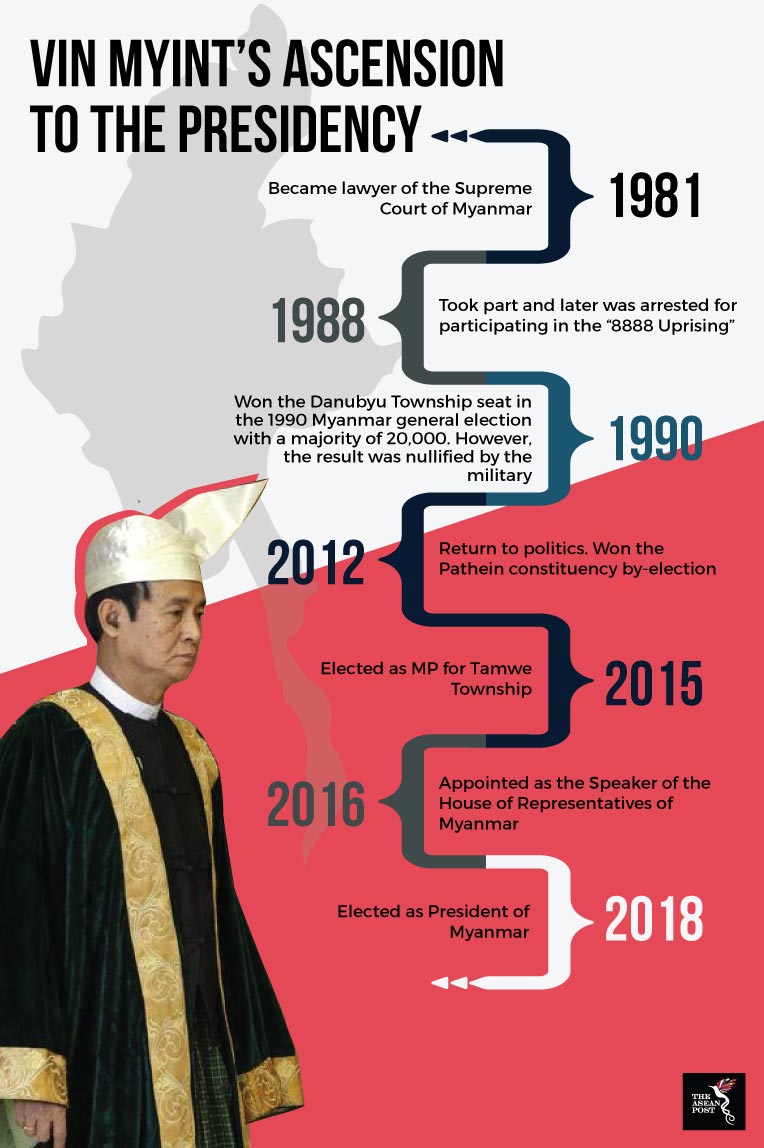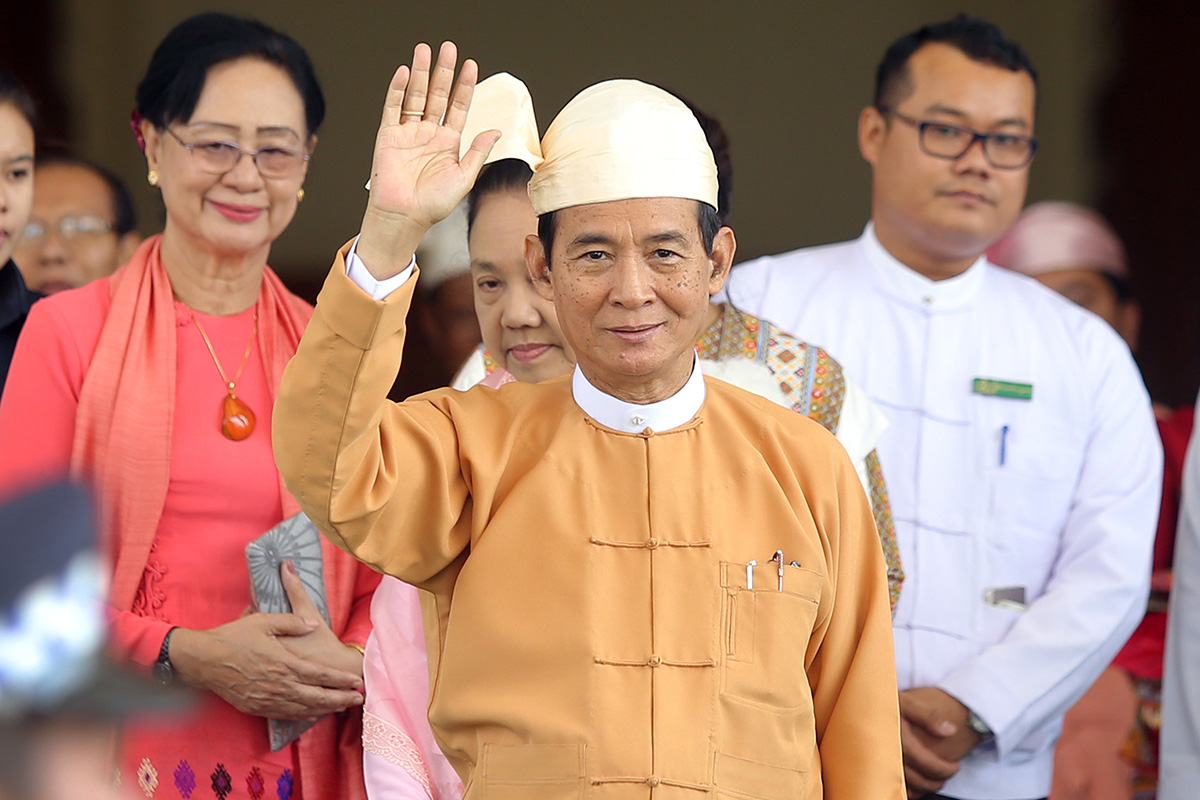On 28 March 2018, Myanmar’s parliament elected Win Myint as the country’s next president. Win Myint was made president after the resignation of his predecessor, Htin Kyaw the week before Win Myint was elected. Htin Kyaw did not explain his reason for resigning but many believe it was due to his poor health. However, after his announcement, Htin Kyaw’s wife denied that he resigned due to his health and suggested that he initially planned to become the president for only a few months.
Win Myint, a 66-year-old lawyer, will be Myanmar’s 10th president since the country gained independence from the British in 1948.
Win Myint is also Aung San Suu Kyi’s closest ally in the government, with a relationship stretching back decades. In 1988, Win Myint was arrested for his role in the “8888 Uprising”, a series of pro-democracy protests across Myanmar in which Suu Kyi emerged as an icon for Myanmar’s democratic hopes. After the uprising, Suu Kyi founded – and has remained the leader of – the National League for Democracy.
Shortly after being released from jail in 1990, Win Myint successfully contested in the Myanmar general election, winning his seat with a majority of over 20,000 votes and the National League for Democracy winning a majority of the total seats. However, the military junta dismissed the election results and carried on to rule until 2011.
Win Myint later returned to politics in 2012 by contesting in a by-election which he won. In 2016, he was appointed as Speaker of the House of Representative of Myanmar. Many have already suspected that Win Myint would be put forward as a presidential candidate after his immediate resignation as speaker when Htin Kyaw resigned as President. Win Myint became president after getting 403 out of 636 lawmaker votes.

Win Myint’s ascension to the presidency could be seen as a strategic move by Suu Kyi herself as he is deemed to be one of her closest allies. Having a close ally in the highest office in the country could prove to be very helpful for her.
While the role of president is mostly ceremonial, the nation’s presidency is still an official constitutional role in the Myanmar constitution as opposed to Suu Kyi’s role of State Counsellor of Myanmar. Under the military drafted national constitution, Suu Kyi’s is unable to become the president of Myanmar because she was married to a foreigner and has two children who are British citizens. So, after winning the elections in 2011, Suu Kyi declared herself as State Counsellor of Myanmar, making her the de facto president of the country. Having an ally like Win Myint as president gives her decisions institutional backing and will carry weight if the military opposes her.
In his inaugural speech, Win Myint pledged to strengthen law and order in the country, promote national reconciliation and peace and to amend the military drafted constitution.
These are ambitious goals for a president of a country that has been mired with controversies and human rights violations. Win Myint’s promise to restore law and order to fight corruption and prevent human rights violations could be his biggest challenge. Especially now with the country facing international backlash for its treatment of the Rohingya population in the Rakhine state. His promises to improve human rights could be helpful to Suu Kyi who is currently facing criticism for her acquiescence of the ethnic cleansing of the Rohingya population. Now, the scrutiny, or even the blame could be shifted to Win Myint, allowing her to focus on other aspects of her leadership such as the economy.
At this point, only time can tell if Win Myint would become a compliant president or a proactive one.
The best outcome for Win Myint’s presidency is for him to prove that he is capable of becoming an independent leader by overcoming the hurdles of the military and stepping out from Suu Kyi’s shadow.
